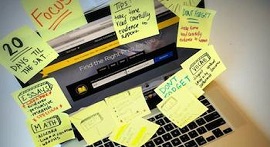Academics
The University of Dallas is a great option for students looking to join a deeply intellectual and spiritual community. After all, the school "offers an incredible liberal arts education, an authentically Catholic community, an active and lively campus atmosphere, and a fantastic Rome study abroad program." UD prides itself on a core curriculum that introduces undergrads to "the great works of Western Civilization" and "gives all the students on campus a shared experience and a wide variety of subjects in which they have a foundational understanding." According to enrollees, this coursework is "good at making the students think independently." Students also appreciate that it is "rigorous but thorough,...[preparing] students to succeed after graduation." And while classes tend to be traditional, students emphasize that they're "done to the point of excellence." For example, a history discussion that weaves together "art, politics, music, literature, and philosophy."
That excellence may stem from the professors, described as "not only great teachers but great role models." They continually demonstrate that they "care about educating the entire person and are often willing to talk with students about broader life questions as well as course specific questions." And while they "expect students to work hard and grade accordingly," they're also "more than fair, and are always willing to go above and beyond to help any student who desires it." Even better, UD professors "truly engage the class and inspire learning through their own joy in the subject.." Indeed, "they do everything in their power to bring to life the content and help each student grow."
Student Body
The University of Dallas has cultivated a "very lively and friendly" student body that's "bright and highly driven." They're "always asking the deeper questions and very passionate about the truth." Indeed, undergrads here love to "engage in spontaneous conversation" and it's quite common to "find students in and out of class discussing the classics as if they were common knowledge to everyone." UD students also "tend to value tradition, family, and faith." This isn't too surprising given that "a majority of the students are Christian, and of those, most are Catholic." Another undergrad elaborates, "More than anywhere else I've been, my peers also have a genuine interest in being faithful people and growing in their spiritual lives." A few individuals caution that the university's culture is "catered to very conservative white Catholics," but the majority assert that "the small student body allows for genuine connections and positive interactions to take place daily-at the campus cappuccino bar, school events, and even walking down the mall between classes." As one contented undergrad shares, "I haven't walked away from a conversation without smiling."
Campus Life
There are so many things to do that I often find myself struggling to decide how to fit them all in! That's a great "problem" to have, and one that showcases that "while students spend substantial time during the week on coursework, they are also quite creative when it comes to relaxing and having fun." All interests are on the table, whether that's fencing, knitting, or "societies dedicated to Tocqueville and Alexander Hamilton." For those seeking additional intellectual stimulation, there are "many lectures, debates, and discussions given by our professors throughout the year." For those wanting something different, there are activities like "bonfires, musical jam sessions, intramural sports, events in Dallas and Fort Worth, road trips, camping, hiking, etc."




